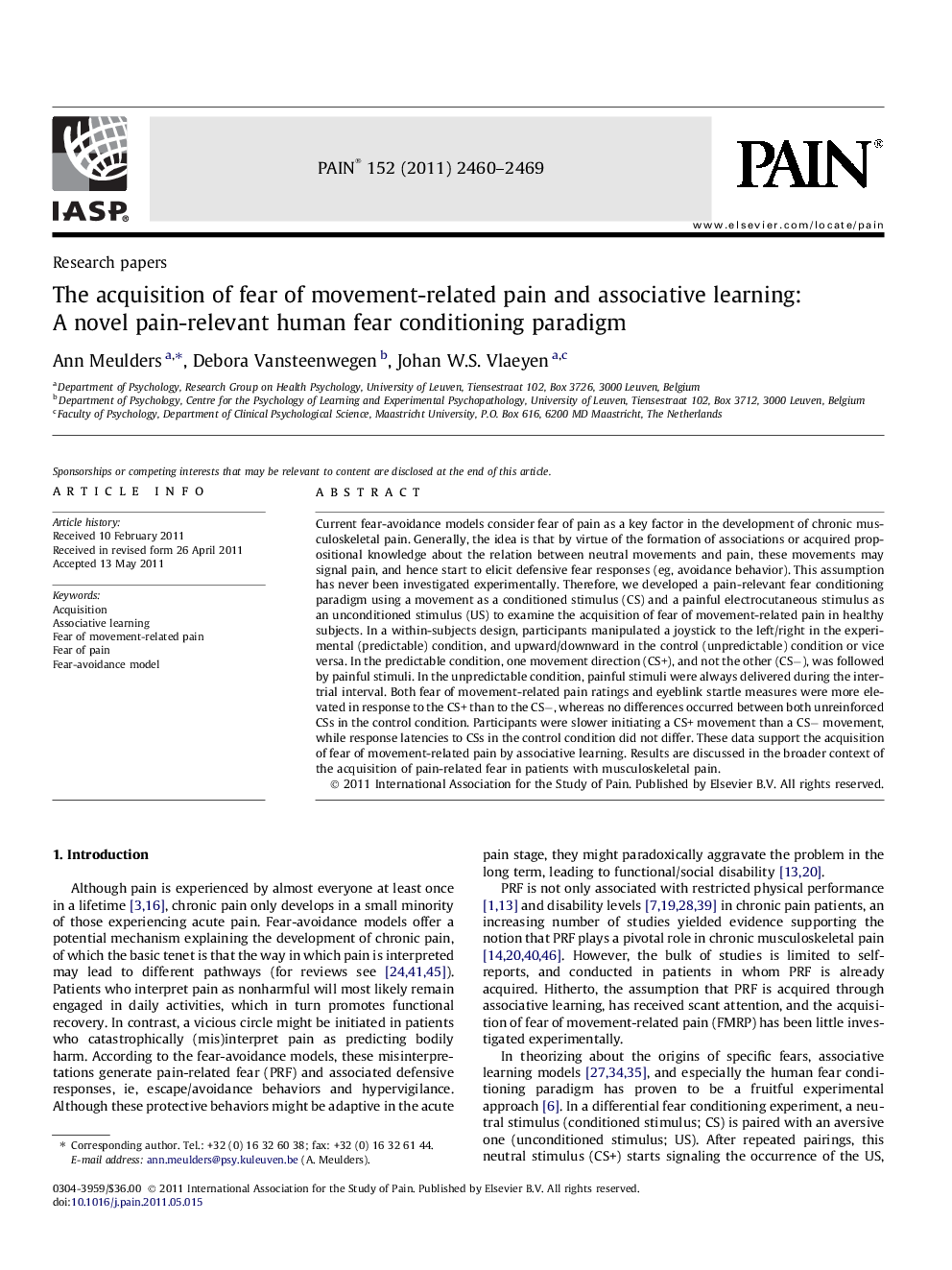| کد مقاله | کد نشریه | سال انتشار | مقاله انگلیسی | نسخه تمام متن |
|---|---|---|---|---|
| 914233 | 918388 | 2011 | 10 صفحه PDF | دانلود رایگان |
عنوان انگلیسی مقاله ISI
The acquisition of fear of movement-related pain and associative learning: A novel pain-relevant human fear conditioning paradigm
دانلود مقاله + سفارش ترجمه
دانلود مقاله ISI انگلیسی
رایگان برای ایرانیان
کلمات کلیدی
موضوعات مرتبط
علوم زیستی و بیوفناوری
علم عصب شناسی
علوم اعصاب سلولی و مولکولی
پیش نمایش صفحه اول مقاله

چکیده انگلیسی
Current fear-avoidance models consider fear of pain as a key factor in the development of chronic musculoskeletal pain. Generally, the idea is that by virtue of the formation of associations or acquired propositional knowledge about the relation between neutral movements and pain, these movements may signal pain, and hence start to elicit defensive fear responses (eg, avoidance behavior). This assumption has never been investigated experimentally. Therefore, we developed a pain-relevant fear conditioning paradigm using a movement as a conditioned stimulus (CS) and a painful electrocutaneous stimulus as an unconditioned stimulus (US) to examine the acquisition of fear of movement-related pain in healthy subjects. In a within-subjects design, participants manipulated a joystick to the left/right in the experimental (predictable) condition, and upward/downward in the control (unpredictable) condition or vice versa. In the predictable condition, one movement direction (CS+), and not the other (CSâ), was followed by painful stimuli. In the unpredictable condition, painful stimuli were always delivered during the intertrial interval. Both fear of movement-related pain ratings and eyeblink startle measures were more elevated in response to the CS+ than to the CSâ, whereas no differences occurred between both unreinforced CSs in the control condition. Participants were slower initiating a CS+ movement than a CSâ movement, while response latencies to CSs in the control condition did not differ. These data support the acquisition of fear of movement-related pain by associative learning. Results are discussed in the broader context of the acquisition of pain-related fear in patients with musculoskeletal pain.
ناشر
Database: Elsevier - ScienceDirect (ساینس دایرکت)
Journal: PAIN - Volume 152, Issue 11, November 2011, Pages 2460-2469
Journal: PAIN - Volume 152, Issue 11, November 2011, Pages 2460-2469
نویسندگان
Ann Meulders, Debora Vansteenwegen, Johan W.S. Vlaeyen,